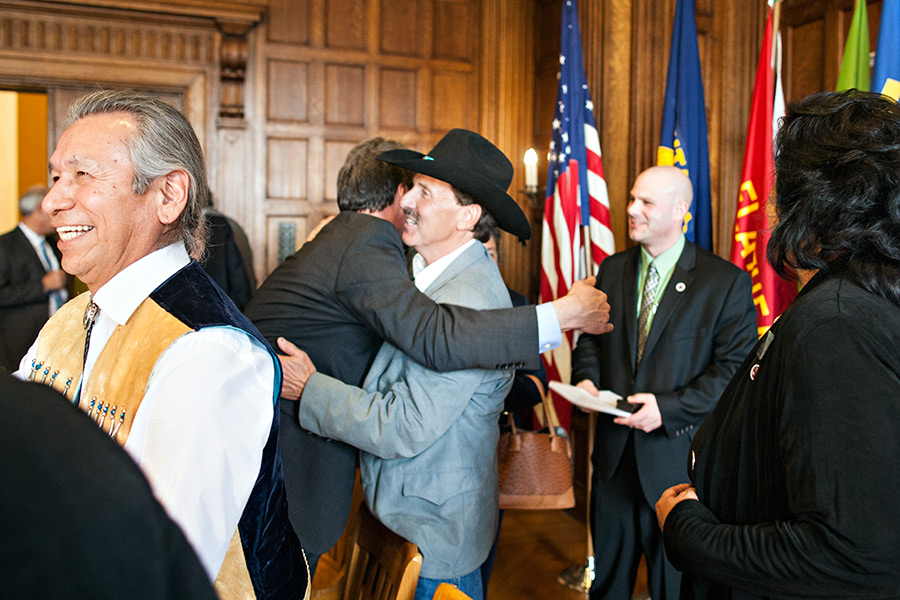Tribes Defend ‘Grassroots Lobbying’ in Response to Water Compact Complaint
Flathead Republican chairman accuses CSKT of illegal lobbying in promotion of controversial compact bill
By Tristan Scott
The Confederated Salish and Kootenai Tribes responded May 18 to a complaint alleging the tribes illegally lobbied support for the Flathead water compact last legislative session, writing that so-called “grassroots lobbying” isn’t subject to reporting under Montana law.
Flathead County Republican Party Chairman Jayson Peters filed the original complaint in April, and Commissioner of Political Practices Jonathan Motl accepted it.
The complaint names CSKT, public affairs firm Mercury LLC, registered lobbyists Mark Baker and Shelby DeMars, and the pro-compact group Farmers and Ranchers for Montana (FARM), which the complaint identifies as a “grassroots lobbying group working on the tribes’ behalf.”
According to Motl, the alleged rules violation falls in a “gray area” surrounding the regulation of grassroots lobbying efforts, which he said deserves further clarification through a rules change.
The complaint argues that FARM has “chosen to use dark money and skirt Montana lobbying laws to hide the full amount of funds to lobby the Montana Legislature and other elected officials.”
“This is a breach of the public trust and open government,” the complaint states.
The tribes’ response, submitted by Helena law firm Morrison, Sherwood, Wilson & Deola, states that the tribes registered with the commissioner and reported paying two registered lobbyists – Baker and Shane Morigeau – in 2015. DeMars, however, is employed by FARM in a non-lobbyist capacity, the complaint states.
According to rules governing lobbying in Montana, lobbyists must register with the state if they engage in face-to-face discussions with legislators and disclose the in-kind value, or cash value, of their contributions.
The same rules don’t apply to so-called “grassroots” groups that make contributions that are less quantifiable – for example, by urging constituents in a lawmakers’ legislative district to contact the lawmaker and urge him or her to vote a certain way.
Motl said lobbying violations in Montana are challenging to enforce due to the state’s unclear lobbying rules.
His office will begin work later this year to reform and clarify those disclosure requirements.
Motl and a team of lawyers will work this summer to implement the state’s new campaign finance disclosure law, passed by the Legislature earlier this year. He said he expects they will finish that work by mid-November, and a smaller team will begin tackling lobbying regulations the following month.
With the recent passage of the Montana Disclose Act, even Peters, the author of the complaint, said lobbying regulations needed reform, and the issue transcended partisan politics
Motl said that while the Flathead Republicans brought this particular complaint, similar complaints could just as easily been brought against conservative groups. Drawing comparisons to local efforts by Americans for Prosperity – Montana to target Rep. Frank Garner, R-Kalispell, for his refusal to sign a blanket pledge opposing Medicaid.
“The sort of grassroots activity that people are concerned about is not just confined to one entity,” Motl said in an interview last month.